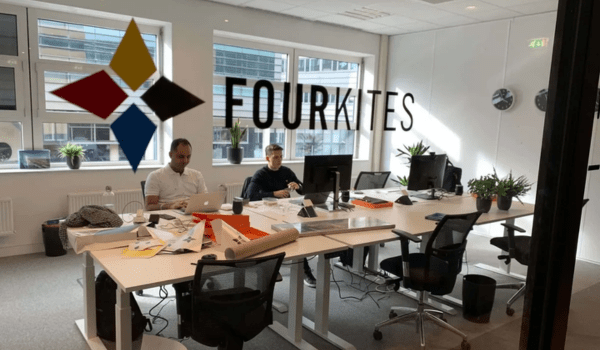Ensuring employees’ mental wellness and well-being is of utmost importance for any organisation. A mentally-healthy workforce leads to increased productivity, reduced absenteeism and higher employee morale. When employees feel supported and valued, they are motivated to stay engaged and committed to their roles. Clearly, FourKites, a leading visibility solutions provider, realises this only too well.
Recognising the urgent need to value employees’ mental well-being, FourKites, a company with a people-first philosophy, has introduced a unique initiative called ‘Rest & Recharge Day.’
The firm is aware that fostering a positive work environment that prioritises mental health encourages creativity, innovation and effective teamwork. Such an approach also enhances employer branding by attracting top talent and bolstering the organisation’s reputation.
Compliance with legal and ethical obligations is another reason for organisations to focus on employees’ mental well-being. Neglecting mental health considerations can lead to costly consequences in terms of medical expenses, reduced productivity and potential legal issues.
Amidst the shift in work cultures during and post pandemic, professionals have experienced increased mental fatigue, impacting personal and professional boundaries. Therefore, as a part of its Great Benefits policy, FourKites offers employees a site-wide day off once every two months. This time off from work is granted so that employees can dedicate quality time to their loved ones without any work-related interruptions. The company’s singular focus is to appreciate employees’ hard work and embed a culture of well-being in the workplace.
Kalyan Durairaj, director, people- APAC, FourKites, shares valuable insights about the Rest & Recharge Day and its impact on prioritising employee well-being, satisfaction, engagement and productivity.
“These recharge days were meant to be flexible and employee-centric, giving them the freedom to take time off whenever they needed it. The company also made sure to inform customers about these recharge days to avoid any disruptions in services”
Kalyan Durairaj, director, people- APAC, FourKites
During the implementation process, FourKites encountered challenges in managing a globally- distributed team and ensuring seamless collaboration across different projects. Nevertheless, the firm recognised the importance of promoting employee well-being and decided to foster a positive and supportive work environment.
During the analysis, it was discovered that formally implementing may not be enough to ensure employees take the required time off. Many instances arose where teams from different projects collaborated, leading to a busy and noisy working environment. Employees often found it challenging to take time off while knowing their team members were working tirelessly on various projects.
To tackle this problem, the company decided to implement the concept of recharge days. Durairaj says, “These recharge days were meant to be flexible and employee-centric, giving them the freedom to take time off whenever they needed it. The company also made sure to inform customers about these recharge days to avoid any disruptions in services.”
According to Durairaj, the main focus behind this initiative was to emphasise employee mental well-being and encourage a healthy work-life balance. By allowing employees to recharge, spend quality time with their families, or pursue personal interests, the company aimed to enhance employee satisfaction and overall productivity.
Durairaj reveals, “Now, employees share their rejuvenating experiences during these recharge days on social media, promoting a positive work culture and encouraging others to prioritise their well-being. We believe that by caring for our employees’ needs and providing meaningful time off, we can foster a happier and more engaged workforce.”
Talking about challenges, Durairaj shares, “Initially, there were challenges in ensuring employees took their recharge days seriously. However, over time, the culture evolved positively. Employees now eagerly embrace these days, enjoying the freedom to recharge and spend quality time with their families. The company encourages employees to share their experiences on social media, promoting a supportive and caring work environment.”
The benefits of this approach are numerous, opines Durairaj. Employees have reported improved well-being and productivity, and the company has seen enhanced employee satisfaction and engagement. Leaders have learned to respond to customers using their language, resulting in better communication and an understanding of customer needs.
He says that the geographical spread and differing time zones posed challenges, but the company adapted by allowing flexible work hours and breaks during the day. The emphasis is on integrating work and life, allowing employees to take care of personal responsibilities even while delivering high-quality work.

“The company takes pride in considering their employees’ families as an integral part of its success. Support is offered for various needs, financially or in other forms, to ensure employees feel valued. This approach has resulted in a positive work environment where employees are motivated to contribute to the company’s success,” emphasises Durairaj.
Collecting feedback from employees has proven beneficial in understanding the importance of recharge days and flexible work arrangements. Initially, there were challenges in communicating and promoting these concepts to all employees. However, the company started using surveys, both internal and external, to assess employee sentiment and identify areas for improvement.
Progress is measured too. The company conducted an annual survey through an external institution to evaluate its progress in building a high-performing and high-trust culture. While there were positive scores, the company sought actionable insights to address areas that needed improvement.
To enhance employee engagement, the company regularly analyses data to understand the effectiveness of its benefits and policies. By emphasising continuous improvement, the company aims to create a supportive work environment.
As the organisation embraces remote work, it recognises the importance of developing skills and knowledge that will help it thrive in a diverse and geographically-distributed workforce. The company encourages leaders to adapt and amend policies and processes to cater to this evolving work environment.



